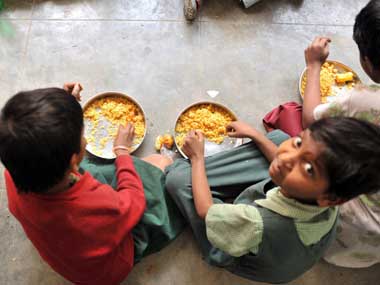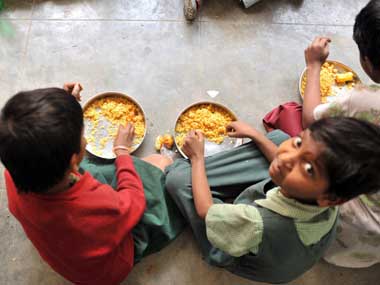Nearly a week after 23 children lost their lives in Bihar, the Bihar Police have set-up an eight member SIT headed by the Sarang SP Sujit Kumar to investigate the incident. While no arrests have been made in the case yet, the tragedy seems to go beyond mere negligence. Last Saturday, a forensic report conducted by the State Forensic Laboratory confirmed presence of toxic insecticide traces in the cooking oil used for making food at the school. [caption id=“attachment_978197” align=“alignleft” width=“380”]  The Bihar Police have failed to make an arrest in the case as yet. AFP[/caption] It found the children’s meal had been prepared with cooking oil that contained monocrotophos – a substance that belongs to a family of chemicals called organophosphates that share a common mechanism of toxic action. The poisonous substance was more than five times the commercial preparation available in market, government officials said. On Monday, serum tests conducted on blood samples of the children indicated ‘acute poisoning’, NDTV reported. But it wasn’t as if India had not been warned before. As early as 2009, the United Nations health agency urged India to consider a ban on the pesticide monocrotophos – the substance said by a magistrate investigating the deaths to be the cause of the poisoning. It had also warned that in India – against strong international health warnings – many pesticide containers are not thrown away after use but recycled and used for storing water, food and other consumables. The pesticide, that was found in the midday meals, is a nerve poison banned by many countries because of its “high acute toxicity”, as described by the World Health Organisation (WHO). And to make matters worse, Bihar’s education Minister said it was impossible to give an assurance that such an incident would not occur again. PK Shahi, the Education Minister, said on Monday, “As a minister, how can I guarantee that in 72,000 schools across the state, there won’t be any poison in the food if somebody is hell bent on doing so.” His comments come even as it was revealed that the Bihar state government returned as much as Rs 463 cr meant for implementation of the midday meal scheme. The sum of money had shockingly, remained unused from 2006 to 2012. The administration though has failed to make an arrest in the case. The main accused, the headmistress of the school Meena Devi, is absconding. On Monday, a Bihar court issued an arrest warrant against her. A government inquiry report last week blamed Devi for the deaths of the children and an FIR was registered against her. The administration also suspended from service for ‘gross negligence’. “There is no trace of her. The administration has decided to attach her property to put pressure on her to come forward,” a district police official said. According to district officials, Meena Devi had forced the cook to use an allegedly contaminated cooking oil despite the latter’s complaint that it had a pungent smell. The opposition has alleged that the Nitish Kumar government has failed to properly implement the midday meal scheme in the state, saying 25 percent of the fund given by the Centre for the purpose in the last financial year was returned. “Out of a total allocation of Rs 162.3 crore only Rs 127.9 crore has been spent by the Bihar government, which returned Rs 34.4 crore to the Union government,” Bihar PCC chief Ashok Chaudhury told reporters. “Around 52 to 53 percent children only are taking advantage of the scheme in Bihar whereas the Centre provides fund for giving the facilities in 100 percent schools to 100 percent students.” Despite 100 percent allocation of fund, kitchen sheds were not constructed in 29 percent schools and surveys pointed out that the quality of food served was very low in terms of quantity and quality, they allege. One can only hope that the eight member Bihar Police special investigation team conducts a thorough investigation into the case and those responsible are brought to book. With agency inputs
Nearly a week after 23 children lost their lives in Bihar, the Bihar Police have set-up an eight member SIT headed by the Sarang SP Sujit Kumar to investigate the incident. While no arrests have been made in the case yet, the tragedy seems to go beyond mere negligence.
Advertisement
End of Article


)

)
)
)
)
)
)
)
)



